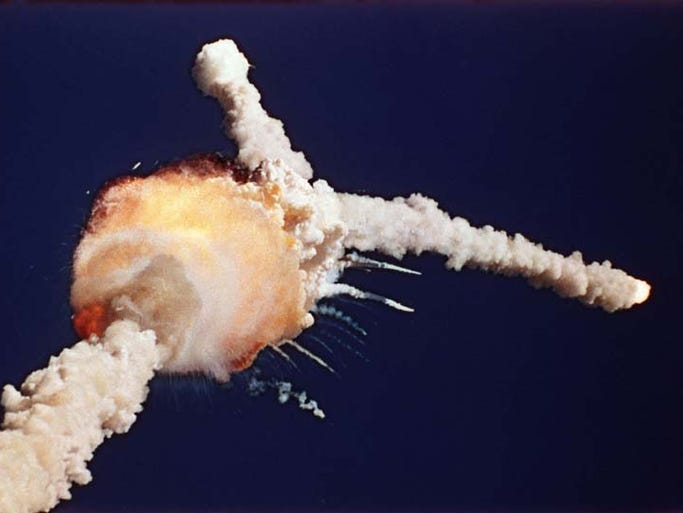It was 1986.
It was an ordinary Tuesday.
And then it wasn't.
I was student teaching in Lubbock, Texas, at Monterey High School. I was nervous. I had been in this classroom for exactly two weeks.
The day before, Monday, January 27th, I had been given the reins to the class. I was now responsible (more or less) for the education of 123 students.
I was 29 years old. I had come to teaching after working for the Texas Department of Human Resources as a social worker responsible for placing children in foster care. I had seen more than my fair share of dysfunctional families. I had seen parents unable and unwilling to care for their children. I had seen children who loved their parents even though those parents did not seem to love those children back.
Finally, I'd had enough. I decided I wanted to work with children on the front end of their problems, to help give them a fighting chance.
I returned to college to earn my teaching certification and now I was almost finished.
I spent hours planning lessons, thinking about how to engage my students, help them see that what we did in the classroom was relevant to their lives.
On my second day of being the teacher, the Space Shuttle Challenger exploded.
A teacher - Christa McAuliffe - was on board. Watching her lift off was preparation for a writing assignment: What impact will a teacher have on the space program?
Suddenly, 27 faces looked at me.
What happened?
Why?
Will they be OK?
How could this happen?
Why do bad things happen?
My students needed me. Not necessarily as their teacher. Not necessarily as their friend.
My English class and my English curriculum suddenly were not very important. Instead, what was important was being there for the students in that classroom.
I learned a valuable lesson that day. Teachers do more than teach the curriculum. To make a difference teachers must serve as guides and mentors and as a steady voice. Teachers help students make sense of the world.
Making sense of the world means that I will give my students the tools they need to be successful. If I am supposed to help them learn English I have a responsibility to help them learn English.
But I can't teach them English and forget about the world that they live in. English, math, chemistry, history - every subject must find a connection to the world that my students experience beyond the walls of my classroom.
Sometimes that world explodes into the classroom - like it did on January 28, 1986. At those times the world is hard to ignore.
Most of the time though the world waits for teachers to make connections, to help our students understand why and how school matters.
And teachers do. Every single day!

No comments:
Post a Comment